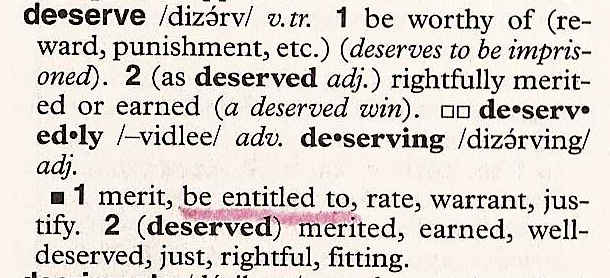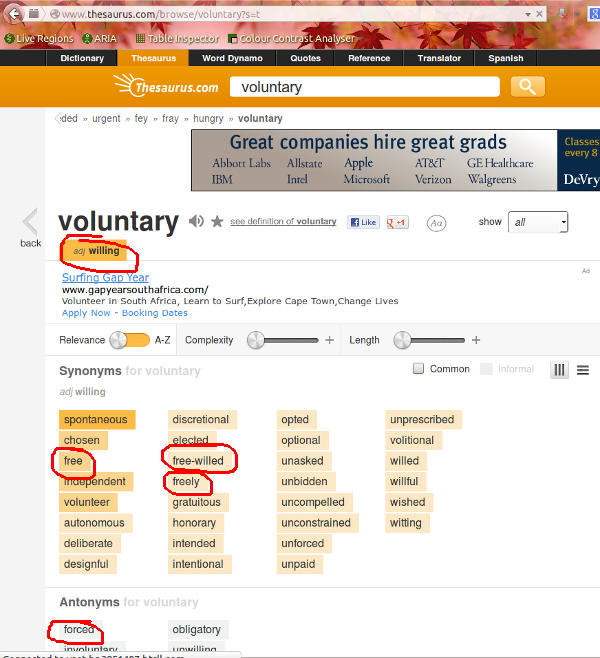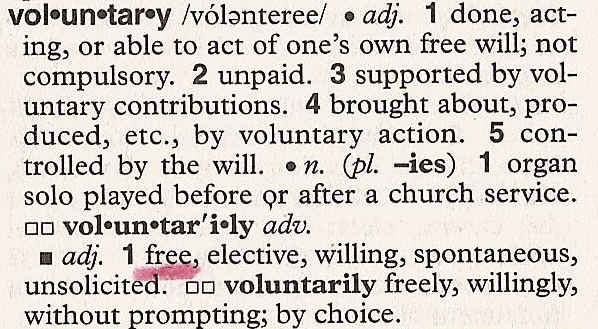In our dystopian present, where North-Korea-style economics is the norm & newspapers like Forbes have to be distributed underground to keep from being crushed by the eye o’ the Socialist Sauron that is our current World Government, a business shill @ Forbes whose last name is 1 letter ’way from “salesman” pleads, “Wherefore art thou true capitalists?”
It’s clear that either Salsman must be 1 o’ those enviable breed that can say the equivalent o’ “The sky is green” with a straight face or he is even mo’ delusional than I am. Where do I start with this MRA for the rich?
Despite many leftists admitting that capitalism was the victor after the fall o’ the Berlin Wall—which is unsurprising, since leftists love to talk ’bout what victims they are—they forget that our present economy is similar to those s’posedly-fallen socialist economies.
So… Then capitalism wasn’t the victor, after all. Socialism was. He basically says, “The fall o’ the Berlin Wall proved that capitalist countries are the best ’cause the capitalist countries were the 1s that didn’t collapse, even though they’re not truly capitalist, but socialist.” But if, in your own words, capitalism doesn’t truly exist anywhere—they’re all infected with that evil socialism—then capitalism is truly the failure.
What are you trying to argue? That we should feel triumph ’cause we crushed those socialists but feel bad ’cause we’re being crushed by those socialists? You have to pick 1. You can’t be both the winner & the loser @ the same time, dumbshit.
To be fair, there is some truth to capitalist countries being like “socialist”; but this development is hardly new, has been a part o’ capitalism since it’s inception, & is what I would mo’ accurately call “economics in general” than “socialism.” You’re right, Salsman: government intervention in a system run by the government is crazy! Next thing you know, we’ll have police use violent force gainst what the government calls “theft” in opposition to their own totalitarian specification o’ who owns what.
What fantasy eon do people imagine when they talk ’bout this “free” capitalism that must be contrasted with the vile corrupt, government-infested version that has always existed? Colonial times, when General Washington used military force to crush agricultural workers who rose up gainst “rule by a faraway elite, cronyism and corruption at influential levels of government, and regressive tax policy”? Was it during the Gilded Age o’ so-called self-made capitalists, when the country-spanning railroads were funded primarily by government hand-outs? Or was it the “Golden Age o’ Capitalism”—truly the Golden Age o’ Keynesian Welfare Capitalism.
No. Salsman provides no history, no evidence, no nothing for his diatribe. He does what all political narcissists do: he throws his fists down & calls everything he hates “fascist”—or “socialist,” which in this context is the same: “evil”—& demands everyone do everything exactly as he wants now or else! He wants to feel great ’cause he’s a winner & feel great ’cause he’s a poor li’l victim who should get so much sympathy. He & his capitalist buddies are spoiled brats who need to get over themselves.
I want to emphasize that “MRAs for the rich” point, ’cause he truly depicts rich people as the true victims o’ the US, including some weepy article by The Economist, which argues that rich people apparently have to hide for fear that the majority o’ Marxists that Americans surely are will shove a pitchfork into their bellies. There are many lower-class people that are now homeless due to the economic collapse caused by a few corrupt capitalists literally breaking the law & committing fraud—even those lower-class people who had nothing to do with housing, merely losing their job due to the ripple effect. But they live like kings compared to our pitiful rich who deserve all o’ your pity—or a’least those lower-class people deserve their worsened conditions, unlike the rich… ’cause we say so.
This is bewildering. See, dirty anarcho-commies can get ’way with playing the empathy card, ’cause they believe everyone is special & that we should all get ’long. When one believes that “rational self-interest” is the “one moral code” to rule them all, then whining ’bout other people not feeling sorry for you makes you look like a blubbering hypocrite. Tell those capitalists to quit bitching, pull themselves up by their bootstraps, & step-up their hiding skills. The fear o’ being mauled to death by mobs is only the market putting pressure on capitalists to hide better, which will lead them to do so, creating mo’ efficiency in the hiding industry. Think o’ how many jobs we can create through these new industries that focus on helping capitalists hide from angry mobs. Have you no entrepreneurial imagination, Forbes?
This is added with a dose o’ “No True Scotsman” fallacy in regards to the purported fans o’ capitalism:
Not even today’s Tea Party movement seems committed to capitalism in any deep sense.
“I say so, therefore it’s true. I don’t even need to ’splain what I mean by ’any deep sense,’ much less try to prove this terribly humble claim.”
To be fair, it is surprising, this lack o’ ardent support for a philosophy that upholds selfishness… well, ’cept when one selfishly supports government force when it benefits one. Scratch that: this lack o’ ardent support for a philosophy that upholds individualism… ’cept when one complains ’bout how one needs to network so much to succeed in capitalism, which is just a ’scuse for them to attack capitalism’s true philosophy, which is freedom… ’cept for that whole need for government to protect property…
Hmm…
Maybe the reason nobody ardently stands for capitalist principles is that capitalism doesn’t hold any consistent principles.
Salsman seems to interpret “egoism”—a pretentious term for ’selfishness’ that better hides its practitioner’s true mindless narcissism—but seems to expect a lack o’ selfishness when it comes to capitalists such as Buffet & Gates supporting government subsidies that benefit them, which Salsman bemoans. Maybe Salsman should stop being jealous o’ such successful businesses, pull himself up by his bootstraps, & get better @ networking with the government—that’s clearly what the market argues is the superior path to success.
He goes on to misinterpret what are clearly the US’s 4 foremost economists: Karl Marx, John Maynard Keynes, Friedrich Hayek, & Barack Obama.
He whines that Marx apparently agrees that capitalism is efficient, & yet still mysteriously criticizes it simply ’cause it’s mean ol’ selfish efficiency. I’m amazed Salsman could be so ignorant o’ Marxism in a way that even Misesians aren’t. Everyone knows that Marx famously—wrongly—argued that capitalism would collapse, ’twas such a wreck o’ a system. You’re right: he totally thought capitalism was practical!
He shows this by showing how Marx preferred capitalism to its predecessors, forgetting to mention that socialism wasn’t ’mong those predecessors. To be fair, it is surprising that a man who practically jerked off to modernity would hate older economic systems.
O, wait, he does acknowledge this in the next paragraph, only to interpret it as “Capitalism will fail ’cause it’s evil.” That’s not an exaggeration: Salsman literally puts “Capitalism must ’fail’ because it is ’evil’” in Marx’s mouth. You know, 1 thing that annoys me ’bout procapitalist propagandists is that they’re terrible @ it. C’mon: was that truly the best strawmanning you could do?
Salsman’s criticism o’ Keynes is nothing but Godwin’s Law. He honest-to-god proves that Keynes’s criticism o’ capitalism is bad ’cause Keynes praised Hitler once (since we know that no capitalist economist ever did1). Forbes’s writing standards are so low they couldn’t pass a high-school logic class. Why do you rich people keep trying to validate all o’ these mean people’s hatred o’ capitalism by acting like such morons? Does money have chemicals in it that cause brain damage—must be put there by the evil Fed, I bet!
I want to emphasize that this silly blog post written by some bum using mainly Wikipedia links as citations has mo’ academic quality than an article posted on Forbes. If that doesn’t make Forbes feel embarrassed, they must have no shame (they don’t; capitalists never do). C’mon, my 6-year-ol’ nephew could point @ that argument & go, “That’s stupid.” I would be physically incapable o’ writing something like that, it’s so obviously stupid!
(Sadly, this isn’t the worst argument Forbes has used gainst Keynes; ’nother spewed some pseudopsychiatric bullshit to argue that Keynes’s homosexuality ruined economics forever. Forbes is truly the bastion for classical liberalism2.)
Salsman’s shameless lack o’ honesty continues when he describes Hayek:
In The Road to Serfdom (1944), where he warned, correctly, that the seemingly benign welfare state can lead to a totalitarian [emphasis mine].
When has this ever proven to be correct? Name 1 welfare-capitalist country that has ever turned into Leninism. Name 1 Leninist country whose origin wasn’t from violent revolution & came from parliamentary social democracy. Remember when Western Europe became totalitarian Leninist dystopias under those vile labor parties?
No? No evidence Salsman? Not 1?
Shocking. You’ve shown yourself to be so intellectually honest, so inscrutable before. I’ll tell you what: I’ll give you the benefit o’ the doubt. Maybe you thought 1984 was a documentary ’bout the UK.
Anyway, he whines that even Hayek doesn’t take seriously the moral quality o’ narcissism; but, ’course, as already demonstrated, neither does Salsman, considering his whines gainst Gates & Buffet selfishly benefiting from government intervention. Capitalism isn’t even based on self-interest or “individualist ethic,” as it demands people throw ’way personal gains through government intervention for the—purportedly—collective benefit o’ superior efficiency. & you’d think anyone trying to form a business—a capitalist collective, essentially—writing for a newspaper the collects procapitalist writers together would realize the absurdity o’ praising capitalism for serving “individualist ethics.”
If Salsman were truly an individualist, he wouldn’t be trying to build his career on digging into capitalists’ pants but by living in the wild, growing all his own food. ’Course, if he did that, he’d likely die; hence why individualism never succeeds & why all o’ the most powerful organizations in the world—including the US & multinational corporations—are immensely collectivist.
But then, maybe it’s all that socialism that causes businesses & Forbes to exist. I’m sure when the capitalist revolution happens—it’s coming any minute now! The socialists are as we speak burying the seeds to their own demise!—businesses will whither ’way & we’ll finally have a Robinson Crusoe in every human!
Last, he criticizes a politician’s propaganda blurbs probably shat out by some speech writer in a minute as futilely as I do for him. Obama may love capitalism, but he doesn’t love it for the right reason—the reason that has never succeeded ever in history. You’re right: how absurd o’ him. Fuck destitute hell holes like Sweden; give me… I can’t even think o’ an example, ’cause Salsman refuses to specify which practical application o’ which arbitrary version o’ capitalism that he supports. Somalia when ’twas “anarchist”?—or rather, Americans’ ignorant perception o’ what “anarchism” is. Pinochetian Chile? The Gilded Age? Well, it can’t be then, ’cause there was that aforementioned socialistic railroad-building existed.
How tragic that this purportedly practical economic system has no actual practical application in history—nothing but evil socialism, whether the practical Western versions or the failing Leninist versions.
& it’s sad that someone who brags ’bout capitalism’s practicality has no practical knowledge himself. Perhaps it’s less that every other purported procapitalist is a shitty procapitalist & mo’ that Salsman is & that the so-called shitty procapitalists understand that capitalism’s practicality comes from its lack o’ consistent principles—that government intervention strengthens capitalism rather than weakening it.
’Course, he isn’t practical-minded, so he obviously doesn’t understand why something could be practical. He’s simply regurgitating American propaganda without understanding the purpose for propaganda: tricking idiots into thinking their dominant ideology is great in every way, even if they’re contradictory. Hence why capitalism is both free, but not too free as to let homeless savages trespass on property; hence why capitalism is both individualist, but not too individualist as to eliminate bureaucratic corporations: “Whatever gets you dolts to let me keep my riches—defend it ardently, even—I don’t give a shit what you idiots want to believe.” I bet Salsman will also write an article on how awesome Washington was for not lying ’bout cutting down that cherry tree or ’bout good ol’ Betsy Ross, who received the design for the American flag straight from American Jesus.
Unless rational self-interest is understood as the one moral code consistent with genuine humanity, and the moral estimate of capitalism thus improves, socialism will keep making comebacks, despite its deep and dark record of human misery.
Considering it’s purported proponent doesn’t even understand it, we must be in trouble then.
Addendum:
Also, fuck Forbes for splitting the article into 2 pages ’tween when I 1st wrote this & when I was finishing the final draft. Stop doing that, you idiots: it only makes it a pain in the ass to find specific parts o’ an article & makes me wade through mo’ o’ Forbes’s dumbass thoughts o’ the day.
Footnotes
1 Mises: “It cannot be denied that Fascism and similar movements aimed at the establishment of dictatorships are full of the best intentions and that their intervention has for the moment saved European civilization.”
Note that I am linking to everyone’s favorite Mises cult, the Mises Institute out o’ pretend fairness. In said article, Tucker unsurprisingly defends Mises gainst some “statist-nationalist” “smear artist” @ Slate. Sadly, Tucker’s righteous fury doesn’t distract from the flimsiness o’ his denialist apology: that Mises argued that fascism is useful only in the short run as a “lesser evil” doesn’t change the fact that he defended a totalitarian purely for the purposes o’ violently squashing his other political rivals. It may not show that Mises was evil—which “statist-nationalist” Lind wasn’t alleging, anyway—but it did show what a hypocritical opportunist he was—in a sense, it showed that he was an economist.
Interestingly, Tucker doesn’t bother to defend gainst Lind’s point ’bout Hayek saying he preferred “liberal” dictatorships—dictatorships that serve Hayek ’stead o’ other people—to democracy, nor his point ’bout Hayek & Friedman’s—albeit, Friedman was a neoclassical, so maybe they hate him & his money-tainting Monetarism—support o’ Chilean genocidal dictator, Pincohet.
& yeah, we could spill mud on Marx for his cheating & biological child he refused to acknowledge or his racism gainst Slavs or Proudhon’s antisemitism. I’m too tired o’ research to give links—& fuck laissez-faire libertarians: they can do their own research for once. ’Sides, you can easily find this info within the exciting gossip fights ’tween Marxists & anarchists.
’Course, as a curmudgeon, I would love it, still: as long as economists get trashed, I’m content.
2 The “classical” version being freedom only for rich, white, Christian, heterosexual males.






